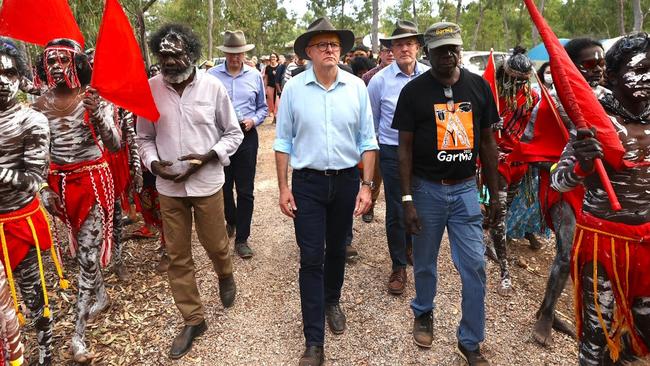Douglas Smith: Indigenous people need to be in the room when decisions are made about us
It’s high time Australian lawmakers listened to our First Nations people, writes Douglas Smith. Have your say: Are we ready for an Indigenous Voice to parliament?
Opinion
Don't miss out on the headlines from Opinion. Followed categories will be added to My News.
It’s been 55 years since First Nations people in Australia were advanced in status in this country.
The 1967 referendum to alter the constitution to include Indigenous people in the census, showed Australia as a country was ready for change, with about 91 per cent of people who voted saying yes.
For those who don’t know, the ’67 referendum was the most successful in Australia’s history and empowered the federal government to make laws for Indigenous people that could assist in addressing inequalities.
At that time, discrimination against Indigenous Australians was rife in all areas of society. And I’m not saying that the referendum ended it afterwards, as it’s something that myself, my family, and just about every other Indigenous person in this country still come into contact with daily. In the scheme of things, many laws have been passed since then which affect Indigenous people, however, they have mostly been done without the proper consultation between government and Indigenous leaders.
For example, the Native Title Amendment Act 1998, otherwise known as John Howard’s 10-point plan, which placed restrictions on native title claims and watered them down. Or, the Criminal Code Act of 1995, which did not use the Racial Discrimination Act 1991 enough, and still doesn’t.
What has this resulted in? It’s simple. Just look at the statistics. In 2022, Indigenous Australians are still the most disadvantaged people in this country. We are over-represented in both the juvenile and adult justice systems in every state, we can expect to die about eight to nine years earlier than non-Indigenous Australians, and at least 30 per cent of the Indigenous population live under the poverty line.
These are just some of the many disadvantages Indigenous people suffer. So, in order for us as a people to advance further, something major needs to happen … namely, a Voice to Parliament.

We, as First Nations people, need to be in control of our own destiny in order for us to better our own lives. For a long time, we haven’t been in the room when decisions have been made about our future, and that needs to change.
But for that to happen, there needs to be as much detail available to the public on what a Voice will look like, as referendums can die in the detail. Opposition Leader Peter Dutton has said he is open to the idea of enshrining a Voice but would need to know exactly what it means.
Over the weekend, on Yolngu country in East Arnhem Land in the Northern Territory, Prime Minister Anthony Albanese addressed the Garma Festival and revealed a proposed set of words to be included in the constitution, that would enshrine an Indigenous Voice to Parliament.
The question he posed to Australians is: “Do you support an alteration to the constitution that establishes an Aboriginal and Torres Strait Islander Voice?”
As for what that will look like, it is yet to be seen or heard. All I can say is, whatever the Voice becomes, it needs to be Indigenous led and driven. Mr Albanese has garnered the momentum for change. What he and our Indigenous leaders have to do now is maintain that momentum.
But how? For the time being, Mr Albanese seems to be getting pressure from journalists, politicians and other interested parties on giving more specific details on what the Voice will look like and when a referendum will be called. My thoughts are that he is going at the right pace. We are approaching unprecedented territory in terms of what this country could become and a Voice is not something that can be rushed.
However, when the time comes for a referendum, the details of what the Voice will be need to be clear and easy to understand for all Australians, so as to give it the best possible chance of succeeding.
If it fails, not only will Indigenous people suffer, but the nation as a whole, because we will continue to see the same statistics and disadvantages that are widespread in Australia.
In my view, legislating the body instead of just having an advisory-only group in the Constitution would be more meaningful, because it would give Indigenous leaders the power they need to make change.
Ask yourself this question: Why would you not let a people and culture that has survived for 65,000-plus years on Earth, become the holders of their own destiny?





